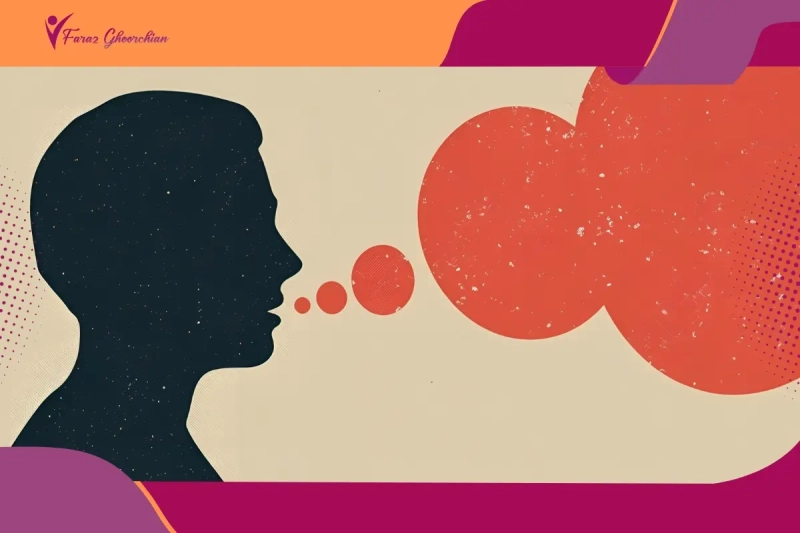- 1. Introduction: Breaking the Silence
- 2. Understanding Masturbation: Normalcy vs. Compulsivity
- 3. Signs You Might Need Professional Help
- 4. Emotional & Psychological Triggers
- 5. The Hidden Impact: Relationships, Productivity, and Self-Worth
- 6. Treatment Options: Therapy, Coaching, & Support
- 7. Mindfulness and Motivational Strategies
- 8. The Power of Support Groups & Peer Accountability
- 9. Addressing Guilt: Religion, Spirituality & Self-Forgiveness
- 10. Stages of Recovery: What to Expect & How to Begin
- 11. Conclusion: Taking the First Step Toward Change
- 12. FAQs
Introduction: Breaking the Silence
Every so often, someone wonders in silence, should I seek professional help to quit masturbation? For some, it starts as a harmless habit but slowly becomes something that shapes moods, focus, and even how they feel about themselves. One person described it as “a secret routine I couldn’t shake, no matter what.” Questions about compulsive masturbation mental health and real-life masturbation addiction treatment options are more common than most admit. When willpower alone is not enough, reaching out for therapy for excessive masturbation can be the first step toward genuine relief and a better sense of control.
Understanding Masturbation: Normalcy vs. Compulsivity
Most people wonder at some point where the line falls between a normal habit and something more complicated. For some, masturbation is simply a personal ritual and never causes issues. For others, it quietly turns into a pattern that is hard to break, especially when it’s used to avoid stress or tough emotions. One young man once admitted, “I never thought about compulsive masturbation mental health until I realized how much it was draining my energy.” The physical effects of excessive masturbation can show up as fatigue or irritability. Sometimes, a person finds themselves searching for answers about how to stop masturbating compulsively after noticing routines slipping or daily life getting off track. Recognizing this turning point is the first real step toward making a change.
Signs You Might Need Professional Help
Sometimes the signs are easy to ignore at first. Maybe you tell yourself it’s just stress, or that things will settle down next week. But for some, those worries stick around. One college student shared, “It wasn’t until I skipped two classes in a week that I realized something was off.” When the urge keeps returning, and life feels stuck, these are moments when professional help starts to make sense. Here are some real-life warning signs that may point toward masturbation addiction treatment options or a need for teenage masturbation addiction help:
- Trying to cut back, only to fall into the same habits days later
- Missing deadlines or skipping plans because you feel distracted or exhausted
- Feeling anxious or down after each episode, wondering if you’ll ever stop
- Noticing that friends or partners drift away, or you start making excuses to avoid them
- The question “Do I need help?” keeps popping up in your head
- Finding it hard to imagine a day without it, no matter how much you want to
- Even when you know the consequences, the breaking the masturbation habit cycle feels impossible
For anyone quietly wondering when to seek help for masturbation addiction, noticing these patterns is not failure; It’s the start of something better.
Emotional & Psychological Triggers
Many people are surprised to realize how often emotions drive their habits. For some, stress, loneliness, or boredom quietly fuel the urge to act out. Over time, these feelings become powerful emotional triggers of masturbation addiction, making it harder to break free. One young woman admitted, “I started noticing the pattern; It always happened when I felt overwhelmed or alone.” Sometimes, old wounds or anxiety are at the root, making the urge feel even stronger. Professional therapy for excessive masturbation and cognitive behavioral therapy for masturbation both focus on uncovering and managing these hidden drivers. By recognizing the specific emotions behind the urge, it becomes possible to create healthier routines. Building new coping skills for stress, sadness, or anger is not always easy, but it is often the difference between repeating old bad habits and making lasting progress.
The Hidden Impact: Relationships, Productivity, and Self-Worth
It often starts small. A bit less focus, a little more tiredness, maybe a secret skipped meeting. Over time, compulsive masturbation mental health struggles can bleed into every corner of life. One man remembered the moment his girlfriend asked if he was losing interest; he hadn’t noticed the growing gap. The impact of masturbation addiction on relationships is rarely loud, but it’s real. At work or school, even minor mistakes pile up, and it becomes clearer how masturbation affects productivity in unexpected ways. Sometimes just one lingering masturbation side effect like irritability is enough to make someone question their own worth. All these little shifts can quietly shape how a person sees themselves. It’s easy to brush it off, but recognizing these patterns is what lets someone finally decide it’s time for a new start.
Treatment Options: Therapy, Coaching, & Support
Choosing how to get help can feel overwhelming at first. Some people start with traditional therapy for excessive masturbation, talking things through with a counselor who simply listens. No shock, no shame, just honesty. One man recalled how cognitive behavioral therapy for masturbation opened his eyes to triggers he had ignored for years. For others, real progress came with life coaching for sexual compulsivity, where setting small goals and having regular check-ins made change actually stick. Is one method always best? Not really. Sometimes it’s trial and error. These days, many prefer the privacy of online counseling for masturbation addiction, especially if starting face-to-face feels too intimidating. Self-guided resources help too; reading some of the best books on quitting masturbation can make the whole thing seem less lonely and more doable. There are so many masturbation addiction treatment options now. What actually matters is finding what feels right and giving yourself permission to try, even if it takes a few attempts to get there.
Mindfulness and Motivational Strategies
Honestly, some days just feel harder than others, and that is normal. Many people find that using mindfulness techniques for masturbation control helps break up old routines. One guy shared that he kept a sticky note on his mirror that read, “Pause, then decide.” He swore it helped more than anything else. These small, imperfect habits can make a big difference. If someone is looking to stay on track and really focus on preventing relapse in masturbation recovery, here are a few things that might help:
- Take a quick walk or change your environment when urges hit
- Jot down what triggered the craving instead of acting right away
- Set phone reminders for personal motivational strategies to stop masturbating
- Reach out, even if it feels awkward, to someone who gets it
- Celebrate one honest day, even if it’s not perfect
Trying, failing, and trying again is what actually moves people forward.
The Power of Support Groups & Peer Accountability
There’s something powerful about not having to do it alone. People are often surprised by how much strength they find in support groups for masturbation recovery. Sometimes, simply sharing a struggle out loud with someone who understands can lift an enormous weight. One man said that having a group chat to check in with kept him from slipping back into old patterns. The sense of connection builds confidence and hope, especially when days are tough. The Role of Peer Support and Accountability in Masturbation Recovery is more than just a nice idea; It’s often what makes real change possible. With honest conversations, a little encouragement, and group milestones, people see progress that felt impossible on their own. For anyone worried about reaching out, it’s worth remembering that most others in these groups started with the same fears and ended up grateful they took the risk.
Addressing Guilt: Religion, Spirituality & Self-Forgiveness
For many, guilt is the hardest part to carry, especially when it’s tied to personal beliefs. Religious guilt from masturbation is something people rarely discuss openly, yet it can shape daily choices and self-worth in unexpected ways. Some find themselves questioning their faith or feeling unworthy because of a private struggle. Others look for answers through spiritual healing from masturbation habits, turning to prayer, meditation, or reflective reading. The journey is deeply personal. Genuine recovery often means learning how to forgive oneself, not just in words but in action. Compassion matters. Real change comes when a person understands that mistakes do not erase value or belonging. By blending spiritual healing from masturbation habits with practical steps and honest reflection, many people find a new sense of peace that helps them move forward with hope and integrity.
Stages of Recovery: What to Expect & How to Begin
The path to recovery rarely feels neat or predictable. Sometimes it starts with a jolt, like one woman quietly admitting she couldn’t look herself in the mirror after another late night. From there, different stages might unfold, sometimes out of order:
- A period of honest self-reflection, often mixed with guilt or confusion
- Late-night searches for masturbation addiction treatment options, hoping for something that finally makes sense
- Trying out support groups for masturbation recovery and realizing others actually get it
- Stumbling through the messy part of quitting masturbation, sometimes feeling clumsy or frustrated
- Noticing small wins, like better sleep or the surprise of how much sex benefits exercise can bring
- Reading about the stages of masturbation addiction recovery and thinking, maybe this is possible after all
Each setback hurts, but with each step, most people find the next one gets a little easier.
Conclusion: Taking the First Step Toward Change
Just asking “should I seek professional help to quit masturbation” shows more strength than most people realize. One guy said, “I didn’t think talking to someone would help, but it was the first time I didn’t feel judged.” There is no single right way to start. Some people try new routines, others explore masturbation addiction treatment options, and many find hope in support groups for masturbation recovery. What matters is taking that first, awkward step. Progress may be uneven, but even small efforts can lead to real change over time.
FAQs
1- Is it normal to struggle with quitting masturbation?
Yes, many people find that stopping a deeply rooted habit is difficult, especially if it is tied to stress or emotions. Seeking advice on how to stop masturbating compulsively is a common step.
2- When should someone consider professional help?
If daily life, relationships, or self-worth are being affected, looking into masturbation addiction treatment options or therapy for excessive masturbation can make a real difference.
3- Are there ways to recover without therapy?
Some people find relief using mindfulness techniques for masturbation control, reading the best books on quitting masturbation, or connecting with support groups for masturbation recovery.
4- What about feelings of shame or religious guilt?
Religious guilt from masturbation is real for many, but self-forgiveness and even spiritual healing from masturbation habits can play a key role in recovery.











